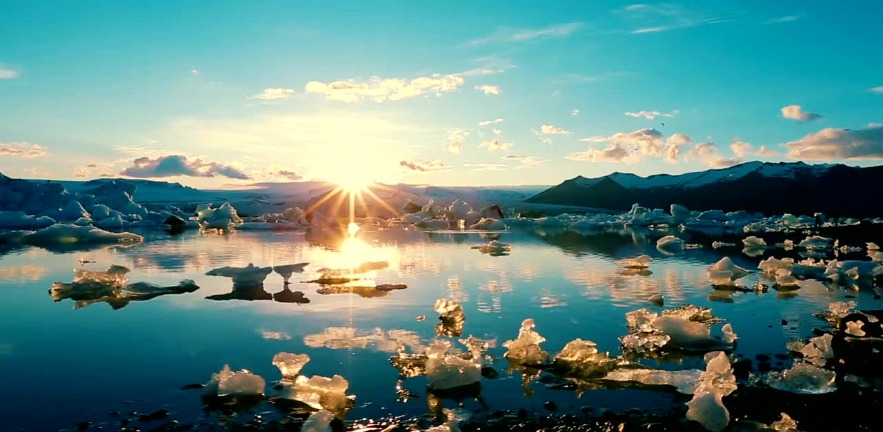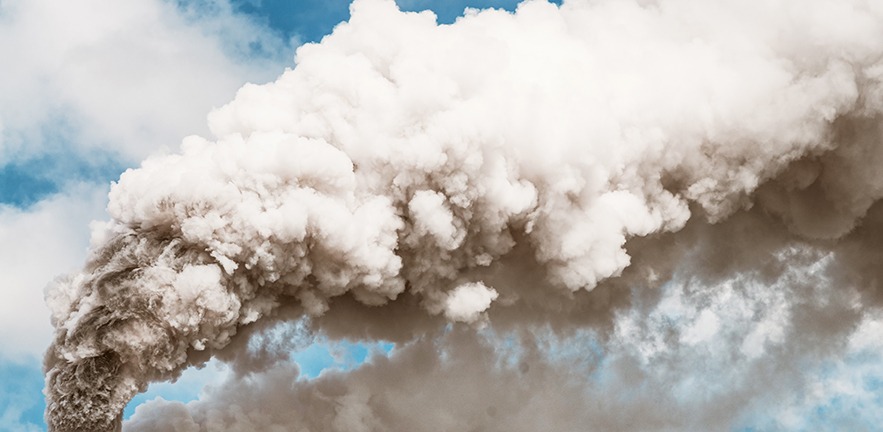
Headlines usually focus on the physical destruction linked to climate change, including damaging floods and droughts leading to wildfires. But the economic impact of sustainability issues are also critical. How can we deliver a future that doesn’t cost the Earth?
The financial impact of climate change
Extreme weather events, such as storms, floods and heatwaves, cause an estimated $195 billion a year in reported losses. Findings from the Cambridge Climate Change Business Risk Index predict this will rise to $234 billion a year by 2040 due to the increasing frequency of natural catastrophes.
The Index, developed in collaboration between the Centre for Risk Studies at Cambridge Judge, the British Antarctic Survey and Cambridge Zero, shows that indirect costs from supply chain disruption and other knock-on consequences could in fact add over $100 billion in losses per year.
Urging business to evaluate their own exposures to the growing risk to improve their resilience and sustainability, the researchers involved in the Index said that climate change is a growing concern for corporations, many of whom are now trying figure out how likely it is to affect them.
Climate change won’t just affect the economy through the direct and indirect losses of natural catastrophes. Countries could soon see their credit ratings downgraded if they don’t cut their emissions.
A team of economists, including Dr Kamiar Mohaddes, University Senior Lecturer in Economics & Policy at Cambridge Judge, recently developed the world’s first sovereign credit rating to directly include climate science. It highlighted 63 nations that would see their rating downgraded by more than one notch on average by the year 2030 if nothing is done to curb greenhouse gas emissions.
Using artificial intelligence to simulate the economic effects of climate change, the team’s study showed that the additional interest payments on sovereign debt caused by climate-induced downgrades alone could cost treasuries $137 and 205 billion.
The researchers, whose findings were published as a Bennett Institute for Public Policy working paper and came together from the University of Cambridge and the University of East Anglia’s Norwich Business School, called their projections “conservative”.
The value of climate change research
Given the physical and economic impact of climate-related catastrophes, it’s hard to believe that some would argue against a value in finding out more about the causes of global temperature rises.
In response to climate-research critics, Dr Chris Hope issued study saying that better information about a key indicator of global warming could be worth around $10 trillion.
Focusing on the Transient Climate Response (TCR), the study’s estimates are based on the PAGE09 (Policy Analysis of the Greenhouse Effect) model, which was developed by Dr Hope and used by the US Environmental Protection Agency and International Monetary Fund alongside other government bodies.
Charting the impact of alternative finance
The climate-crisis will have a lasting impact on the world’s finances, but the way finance evolves will also have its own effect on the environment.
Conceived and launched against the backdrop of growing concerns about the sustainability and environmental impact of Bitcoin mining, the Cambridge Bitcoin Electricity Consumption Index (CBECI) tracks the cryptocurrency’s network power demand.
Among other comparisons, the Index shows Bitcoin’s electricity consumption in relation to independent sovereign nations. As of 1 November 2021, the Index puts the cryptocurrency’s TWh (TerraWatt hours) per year somewhere between the Netherlands and the United Arab Emirates.
Referenced by major players in the crypto space, such as Elon Musk, the Index also shows which countries have the largest shares of global hashrate, making them the world’s biggest Bitcoin mining nations.
More from Cambridge Judge on climate and the economy
Insight
Climate change and GDP
Study on climate change and economic output co-authored by Kamiar Mohaddes of Cambridge Judge is cited by US Congressional Budget Office and 25 members of Congress in a letter to the Federal Reserve Board.
Research team from the Cambridge Centre for Alternative Finance (CCAF) at Cambridge Judge Business School, unveils new datasets showing geographic shifts in Bitcoin mining – with China’s share declining sharply even before a government crackdown in June 2021.
Misc news
Emissions and credit
The first ‘climate smart’ sovereign credit ratings suggest global warming downgrades as early as 2030, says team of economists including Dr Kamiar Mohaddes of Cambridge Judge Business School.
Better information on global temperature rise due to greenhouse gases could be worth $10 trillion, says new study from University of Cambridge Judge Business School published by the Royal Society. Responding to critics of the value of climate-change research, a leading expert at University of Cambridge Judge Business School says in a study issued today that better information about a key indicator of global warming could be worth $10 trillion. The study focusing on the Transient Climate Response (TCR) was conducted by Chris Hope, Reader in Policy Modeling at Cambridge Judge, and is published in the new issue of the Royal Society publication Philosophical Transactions of the Royal Society A. TCR is the rise in global mean temperature at the end of 70 years caused by a one per cent per year increase in carbon dioxide concentration in the atmosphere; the traditional range for such a temperature increase is between one degree Centigrade and 2.8 degrees Centigrade. The new study by Hope shows that halving the uncertainty range for TCR has a net present value of about $10.3 trillion if this is accomplished in time for emissions to be adjusted by 2020, or $9.7 trillion if in time for emissions…





